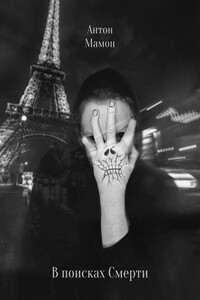‘What was my time?’ I ask.
‘Hmmm? Oh, thirty-seven seconds.’ Her eyes are still on the laptop. She looks to me, then drifts her gaze to the shelf above my head. ‘Try this,’ she says and, standing, reaches to the shelf and hands me something.
I take it. A Rubik’s Cube.
‘Can you do it?’
I turn the cube in my hand, study the colours. The red stands out more than the others, so much so that I have to squint.
‘How fast can you solve it?’
I hold up the cube. Its colours are all mixed up. ‘Press your stopwatch.’
She touches the button and I start. Swift. Skilled. I twist the sides, study each move, each turn until, just like that, the colours match. I bang it down on the desk, hardly a ripple in my breath.
Dr Andersson checks her watch but says nothing.
‘What was my time?’
She looks up yet still does not speak.
‘In 2011 at the Melbourne Winter Open Competition,’ I say, ‘the Rubik’s Cube record was set at 5.66 seconds. So that means-’
‘You did it in 4.62.’
I go still. I have never done it so quickly before. Four point six two seconds. My hand-to-eye coordination is accelerating, but why? How? I hold up my hands, study my fingers, blink at them as if they were precious diamonds, sparkling jewels.
Dr Andersson taps her chin. ‘That speed, that really is quite remarkable.’ She picks up a pen. ‘You have a high IQ, correct?’
I continue to stare at my hands. ‘Yes.’
‘Photographic memory?’
‘Yes.’ My hands return to my lap. I need to tap my thumb a little, let out the stress.
‘How are you at spotting patterns?’
‘Very good. A family priest used to help me when I was a little younger.’
‘A priest? Goodness.’ She sets down her pen, slips one leg over the other. ‘Okay, Maria, here’s what I think: it is possible the prison environment is affecting your Asperger’s. It certainly wouldn’t be the first time. All the sights, sounds, smells for your brain to process. Asperger’s is thought to be a result of widespread irregularity in the brain, a neurodevelopmental anomaly that could be controlled by environmental influences. There was a recent study in the US on it. Perhaps that is what we are seeing here with you.’
I think about this. ‘Prison is modifying my brain?’
‘In an accelerated fashion, yes. Maybe. But not modifying per se-that implies curtailing you. Let’s just say affecting your mind, hmm?’
I touch my head where my brain sits, my modified, neurodevelopmentally affected brain. There are times when I detest it, being me, my head, my neuro issues. Hate it. Locked into myself. Jailed by my own white and grey matter.
Dr Andersson swings her chair towards a cupboard behind her and opens the door. I rake my hands through my hair, scratching my scalp deliberately-my penance.
‘Maria, I just need to take some blood samples now.’
I drop my hands. My internal alarm bells ring. ‘Why do you require bloods?’
She hangs her head to the side. ‘Oh, just routine.’
‘But you are a psychiatrist…not a medic.’
She shuts the cupboard and faces the table. ‘I have a remit to monitor patients.’ She sets out five tubes and a blood-work bag already labelled with my name and prison number.
‘But I am an inmate, not a patient.’ I start to feel uneasy, agitated. I scratch the desk with my nail. ‘What tests are you sending to pathology?’
She unpeels the syringe wrapping. ‘I am sending a full blood count.’ She unwraps the additional four vials and picks up the one already loaded with the needle. ‘Okay?’
‘No.’ I shake my head, scratch harder. ‘No. My blood work is normal. And a full blood count request does not require five tubes of blood.’ I scrape the wood of the desk again and again. This is not routine. Over and over in my head, I repeat: This is not routine.
Dr Andersson lets out a sigh. ‘Look, Maria, I’m sure your blood work is normal. I’m sure it will come back fine. You are a doctor. A medical doctor.’ She says the word ‘medical’ slowly. ‘But you are here now. In Goldmouth. In prison. And in prison, there are different rules. And the rule, right now, is that I have to take blood. From you. Today.’ She pauses, softens. ‘I know it is a change for you,



